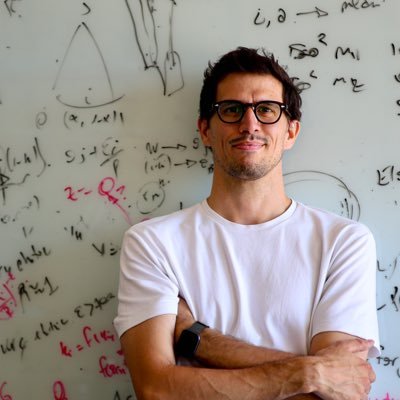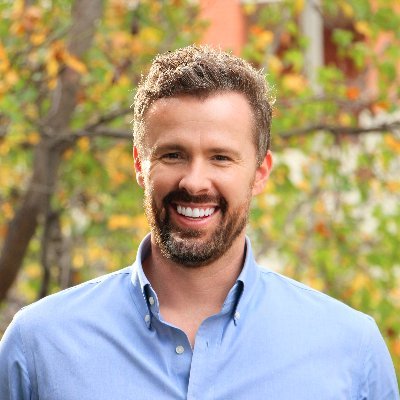
Fernando Cirelli
@fercirelli
Followers
2K
Following
8K
Media
38
Statuses
667
Assistant professor at Columbia SIPA. Macro, Monetary and Finance. 🇦🇷
New York, NY
Joined August 2010
Do households adjust their portfolios when central bank rates move? What triggers adjustments? We tackle these questions in this paper! We study nearly identical safe liquid assets where moving funds is free and instantaneous Yet most households barely respond to spreads!🧵
New CEPR Discussion Paper - DP20612 What Makes Depositors Tick? Bank Data Insights into Households’ Liquid Asset Allocation @fercirelli @arnavardar
https://t.co/SF4uIBzce8
#CEPR_AP #EconTwitter
1
15
71
Wondering how to read Argentina’s recent legislative results—and what they tell us about U.S. foreign economic policy in LA and beyond? Get answers tomorrow (10/28) from this stellar webinar. @VickyMurilloNYC @fercirelli @jafrieden + @Sgc28Sara Register:
lnkd.in
This link will take you to a page that’s not on LinkedIn
Looking forward to this timely webinar that will take stock of Argentina’s debt bailout and elections, using both to probe the politics of U.S. foreign economic policy in an era of global economic uncertainty. Join us @ILASColumbia
@ColumbiaIGP
@ColumbiaSIPA
@BarnardCollege
0
2
4
New VoxEU column on Households’ inaction in the deposit market https://t.co/ZTpy01avw7
@cepr_org
0
0
5
On October 28 at noon ET, join @ILASColumbia & @ColumbiaIGP for Argentina and Beyond: The Politics of US Foreign Economic Policy With @ColumbiaSIPA experts: @FerCirelli, @JAFrieden, @VickyMurilloNYC, and Sara Calvo Register here: https://t.co/NKtjXxQO5W
0
1
3
Aún más: es momento de independizar el banco central de una vez por todas. Cual es el argumento por el cual el socio del ministro de economía dirige el central? Argentina necesita imitar al resto del mundo y crear institución independiente con amplio apoyo del congreso
US support is certainly helpful to prevent speculative currency moves. However, durable progress will require Argentina to move to a more flexible exchange rate regime, accumulate reserves, and build support for its reforms at home.
0
0
2
How do models perform against the data? A two-asset incomplete-markets model with state- or time-dependent frictions: ✔️ Captures cross-sectional portfolio shares across wealth levels ❌ Strongly overstates average portfolio responses to interest rates Relevant for macro!
0
0
4
But if only a few adjust, who drives aggregate deposit shifts? Wealthy households. Deposits are highly concentrated, and the wealthy chase yields. Decomposition: it’s yield-chasing reallocations by the wealthy that move deposits—not anything else.
2
0
1
So who adjusts? The wealthy. They hold larger shares in high-return assets, rebalance more often, and move funds when spreads widen. Beyond wealth, survey evidence shows that financial literacy and inflation knowledge amplify rate sensitivity.
1
0
3
We use bank + broker data: clients can choose among nearly identical assets with different rates. Spreads move. Portfolios don’t. Average shares in low-return assets remain constant. Even more: share of clients adjusting, and the number & size of transfers, stay flat!
1
0
2
Glad to see our paper featured by the AEA!
The COVID-19 pandemic reorganized the US business sector, creating a gap between winners and losers that persisted for years, say researchers at @ColumbiaSIPA and @nyuniversity. #Chart
1
0
23
Interesting number of Argentinians authors in the current issue!
The July 2025 issue of AEJ: Macroeconomics (17, 3) is now available online at https://t.co/GT7Mhx7OfW.
4
5
75
Junior economics faculty from NYU and Columbia, hailing from all corners of the 🌍, come together to enjoy the world’s best cuisine 🇸🇳!
3
7
166
I’m thrilled to introduce six outstanding economics job market candidates from the PhD program in Sustainable Development at @ColumbiaSIPA @SipaSusdev! Each of them brings a unique perspective and cutting-edge research in environmental economics, empirical IO, labor economics,
1
25
131
To all economics PhD applicants, we would like to draw your attention to the PhD in Sustainable Development at Columbia University. The PhD is for economists and scientists interested in issues related to the environment, climate change, energy, development, poverty, health,
7
38
136
Missed our panel on Argentina's Political Economy? Watch a webinar recording of it at our YouTube channel: https://t.co/XWTL988UTQ Featuring @fercirelli, Professor Alan Taylor, and @Gerrygaucho
@ColumbiaSIPA @ColumbiaIGP
0
2
15
Yesterday, ILAS hosted a panel on “Argentina’s Political Economy and the Milei Administration” 🇦🇷 The panel featured Professor Gerardo della Paolera (@Gerrygaucho), Assistant Professor Fernando Cirelli (@fercirelli), and Professor Alan Taylor @ColumbiaSIPA
@ColumbiaIGP
0
2
9
📚 Fall Faculty Course: Professor Wojciech Kopczuk (@wwwojtekk) will be discussing different methods of measuring and responding to economic inequality in his seminar: Economic Inequality and its Policy Implications this fall at SIPA.
0
2
2
Excited to share that we just posted a major update to our paper "How to Fund Unemployment Insurance with Informality and False Claims: Evidence from Senegal" Check it out for some new data and a modeling framework for social protection in the developing world.
2
12
62
As we announced in Cartagena last year, and due to our perception that demand to present papers at the SED meetings has been increasing, we decided to increase the supply (we considered increasing prices ....). Thus, the first WInter Meetings of the SED will take place... 🥁 1/3
2
46
168











